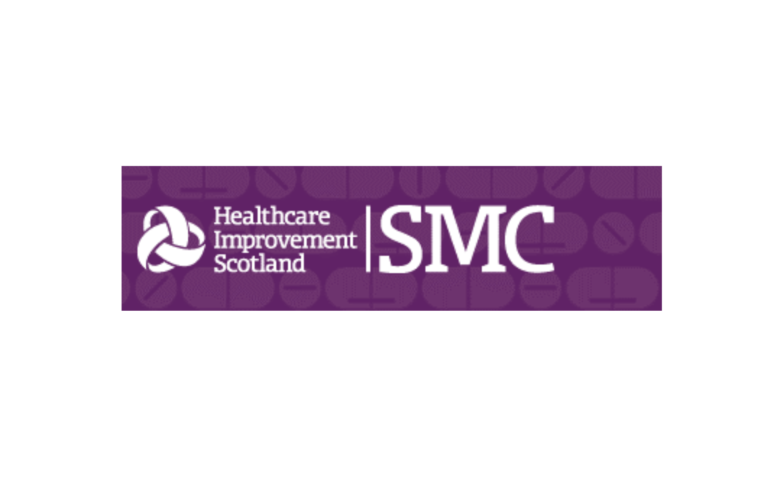| The Scottish Medicines Consortium (SMC), which advises on newly licensed medicines for use by NHSScotland, has today (Monday 5 October) published advice on nine new medicines.
An initial Assessment Report has been published for cerliponase alfa (Brineura) for the treatment of neuronal ceroid lipofuscinosis type 2 (CLN2), a life limiting, inherited condition in children that leads to progressive brain damage. This medicine has been assessed within the ultra-orphan pathway, a new approach introduced last year. CLN2 has a devastating impact on the lives of affected children, as the disease progresses rapidly and they lose their ability to walk, talk, swallow and see. Current treatments are focused on managing the symptoms of the disease rather than the disease itself. Cerliponase alfa may stabilise the condition, improving quality of life for both patients and their families. The submitting pharmaceutical company is now required to provide a plan describing how further data on the effects of the medicine, including those on the patient and carer lived experience, will be collected. Cerliponase alfa will then be available on the NHS in Scotland for a period of three years while this information is gathered. After this, SMC will review the evidence and make a decision on routine availability in NHSScotland. Further information on the new ultra-orphan approach is available within Scottish Government guidance. Ibrutinib (Imbruvica) was accepted for the treatment of Waldenstrom’s macroglobulinaemia (WM) in combination with another medicine, rituximab. The medicine was considered through SMC’s Patient and Clinician Engagement (PACE) process, which is used for medicines for end of life and rare conditions. In the PACE meeting, participants spoke of how WM is a debilitating and life-limiting type of blood cancer that is associated with severe symptoms such as increased risk of infections, weakness, extreme fatigue, and breathlessness. Ibrutinib is the first treatment to be specifically licensed for the treatment of WM and it can improve progression free survival. Carfilzomib (Kyprolis) was accepted for the treatment of multiple myeloma, a type of blood cancer with a relapsing and remitting course that evolves over time and becomes resistant to treatment. Through PACE, patient groups and clinicians highlighted how the symptoms of myeloma can include severe bone pain, kidney damage, fatigue and a depleted immune system which can lead to increased infections. There is currently no cure, but carfilzomib may halt progress of the disease and improve quality of life. Lenalidomide (Revlimid) was also accepted through PACE as a maintenance treatment for myeloma in patients who have undergone a stem cell transplant. PACE participants spoke of the lack of any current treatment to help maintain the remission in these patients. Avelumab (Bavencio) was accepted for the treatment of advanced renal cell carcinoma (kidney cancer) when given together with axitinib, following consideration through PACE. In the PACE meeting, patient groups and clinicians highlighted that advanced renal cell carcinoma is a devastating and incurable disease. A substantial proportion of patients are diagnosed at the advanced stage of the disease, and can experience symptoms including pain, fatigue and lethargy. Avelumab may improve disease control allowing patients to have more time without these symptoms. SMC chairman Mark MacGregor said: “I am pleased we were able to make these medicines available for use by NHSScotland.” “Cerliponase alfa will now move to the next stage of the ultra-orphan pathway. This new approach will allow patients with this extremely rare condition to benefit from access to treatment while companies gather more information on its clinical effectiveness. Scottish Government will announce when these medicines are available for prescribing in NHSScotland.” “As the first treatment specifically for the treatment of Waldenstrom’s macroglobulinaemia, we know our decision on ibrutinib will be welcomed by patients.” “From the evidence provided by the patient group and clinicians at our PACE meeting for carfilzomib, our decision gives the opportunity for disease control and may improve quality of life in some patients with multiple myeloma. For patients who have already undergone stem cell transplant for myeloma, our decision on lenalidomide provides a maintenance treatment to enable them to remain in remission.” “Our decision on avelumab for the treatment of advanced renal cell carcinoma may allow patients to experience more time without the range of difficult symptoms the condition brings.” “For patients with SPMS, the decision on siponimod might allow a slower progression of their condition.” • Lenalidomide (Revlimid) given together with rituximab for the treatment of adult patients with previously treated follicular lymphoma More details can be found on our website.
|


